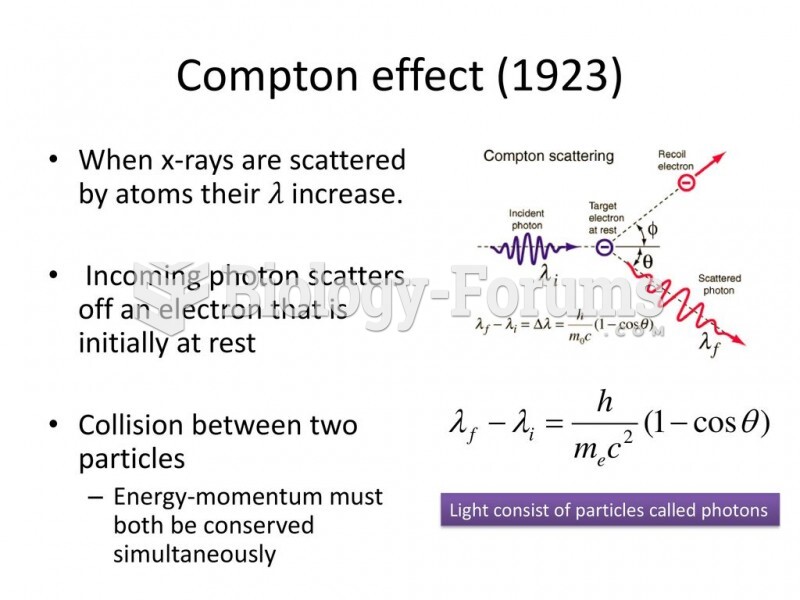Answer to Question 1
4
Rationale 1: The client will exhibit tachycardia when dehydrated as the cardiac system's response to fluid loss.
Rationale 2: Nausea and vomiting are not symptoms of dehydration.
Rationale 3: Nausea and vomiting are not symptoms of dehydration.
Rationale 4:Diuretics can produce dehydration and electrolyte imbalances. Signs of dehydration include thirst, dry mouth, weight loss, and headache. Hypotension, dizziness, and fainting can result from the rapid fluid loss. Dysrhythmias occur as a result of low potassium levels.
Global Rationale: Diuretics can produce dehydration and electrolyte imbalances. Signs of dehydration include thirst, dry mouth, weight loss, and headache. Hypotension, dizziness, and fainting can result from the rapid fluid loss. Dysrhythmias occur as a result of low potassium levels. The client will exhibit tachycardia when dehydrated as the cardiac system's response to fluid loss. Nausea and vomiting are not symptoms of dehydration.
Answer to Question 2
2, 4
Rationale 1: Epistaxis is not a side effect of thiazide diuretics.
Rationale 2: Dehydration is possible because of fluid loss, and patients could experience dizziness due to hypotension when moving from a supine to an upright position.
Rationale 3: Thiazides can cause hypokalemia.
Rationale 4: Dehydration is possible because of fluid loss, and patients could experience hypotension.
Rationale 5: Thiazide diuretics do not cause hypocalcemia.
Global Rationale: Dehydration is possible because of fluid loss, and patients could experience dizziness due to hypotension when moving from a supine to an upright position. Epistaxis, hyperkalemia, and hypocalcemia are not side effects of thiazide diuretics.







